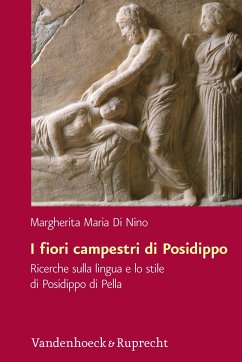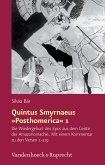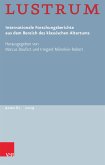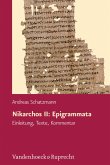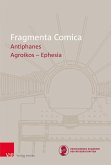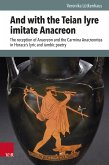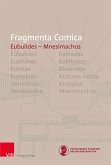Focusing on the so-called 'new Posidippus', Margherita Maria Di Nino's I fiori campestri di Posidippo investigates the main linguistic and stylistic features of the recently-discovered Posidippean epigrams as well as the sources from which the poet drew his inspiration. The book provides a detailed commentary of the 7th and the 8th sections of P.Mil.Vogl. VIII 309, which contain epitaphs for sea victims (Nauagika) and epigrams recording Asclepius' miraculous healings (Iamatika). The strictly philological analysis of the poems is complemented by a detailed comparison between Posidippus' poetic lexis and the language documented in literary and inscriptional epitaphs for sea victims as well as in the shrine inscriptions from Lebena, Epidaurus and Rome.
Dieser Download kann aus rechtlichen Gründen nur mit Rechnungsadresse in A, B, BG, CY, CZ, D, DK, EW, E, FIN, F, GR, H, IRL, I, LT, L, LR, M, NL, PL, P, R, S, SLO, SK ausgeliefert werden.

